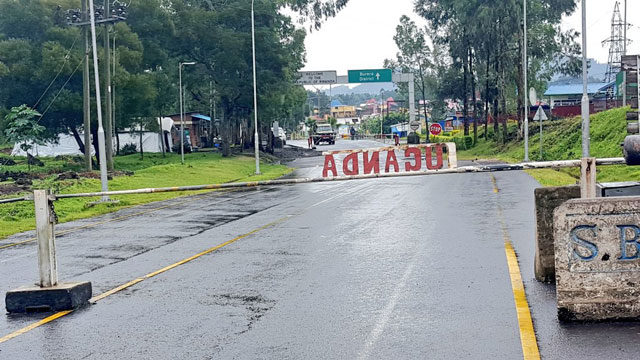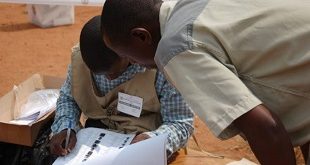
Kampala, Uganda | THE INDEPENDENT | The East African Community- EAC will not intervene in the dispute between Uganda and Rwanda, the second Deputy Prime Minister, Ali Kirunda Kivejinja has revealed.
Kivejinja, who also doubles as the East African Community Affairs, says they received assurance from the Ugandan and Rwandan presidents indicating that they could ably resolve the dispute, saying there is no need for the EAC intervention.
He told journalists at Imperial Royal Hotel on Wednesday morning that until the two heads of state seek the intervention of the EAC, they will not interfere.
His remarks come four days after Rwanda police shot dead two Uganda nationals including John Bosco Tuhirirwe and Job Ebyarishaga at Tabarwe sector in Nyagatare district.
The duo was allegedly smuggling tobacco into Rwanda. A statement by Rwanda says the two were gunned down when they tried to attack police officers.
Tension has been high between the two sister countries since Rwanda closed Gatuna border in January this year. Rwanda accused Uganda of aiding dissidents opposed to President Paul Kagame.
In June, Rwanda temporarily opened the boarder for heavy trucks.
In September, the two states agreed to treat each other’s citizens well but that the issue of free movement of persons, goods and services across the common border and promised to discuss other outstanding issues in a subsequent meeting that would take place within 30 days.
The follow up meeting didn’t happen. Kivejinja down played the tension between the two sister nations, saying it cannot break the EAC.
According to the EAC protocol on Peace and Security, Partner States undertake to develop an East African Community conflict prevention, management and resolution mechanism.
It also states that partner States shall manage and seek to resolve any dispute or conflict within and between two or more Partner States or with foreign countries by peaceful means.
The protocol further says that the Community may, in consultation with the United Nations Security Council and the Peace and Security Council of the African Union, offer to mediate in disputes or conflicts within and between two or more Partner States or with foreign countries.
******
URN
 The Independent Uganda: You get the Truth we Pay the Price
The Independent Uganda: You get the Truth we Pay the Price



